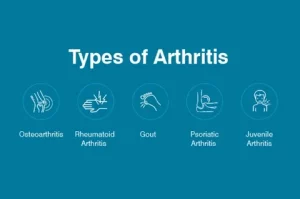Understanding Arthritis: The Basics
Arthritis, a condition marked by inflammation and stiffness of the joints, affects millions of people worldwide. It is often associated with aging, but it can also occur in younger individuals due to various factors such as genetics, lifestyle, and underlying health conditions.
Types of Arthritis
There are several types of arthritis, with the most common ones being osteoarthritis and rheumatoid arthritis. Osteoarthritis is characterized by the breakdown of cartilage in the joints, leading to pain and stiffness, while rheumatoid arthritis is an autoimmune disorder that causes inflammation of the synovium (the lining of the joints).

Symptoms and Impact
The symptoms of arthritis can vary depending on the type and severity of the condition, but common signs include joint pain, swelling, stiffness, and decreased range of motion. Arthritis can significantly impact an individual’s quality of life, affecting their ability to perform daily activities and participate in physical exercise.

The Link Between Running and Arthritis: Debunking the Myth
There has long been a misconception that running increases the risk of developing arthritis, particularly osteoarthritis. However, recent research has shed light on this issue, revealing that running may not be as detrimental to joint health as once believed.
Scientific Evidence
Numerous studies have investigated the relationship between running and arthritis, and the majority of findings suggest that moderate running does not significantly increase the risk of developing osteoarthritis. In fact, regular exercise, including running, can have several benefits for joint health, such as strengthening the muscles around the joints, improving flexibility, and promoting weight management.
Benefits of Running
Running is a high-impact aerobic exercise that can improve cardiovascular health, boost mood, and enhance overall fitness. Contrary to popular belief, it may even have protective effects on joint health when done in moderation. Additionally, running can help maintain a healthy weight, which is crucial for reducing the risk of arthritis and other chronic conditions.
Managing Arthritis Risk: Tips for Runners
While running may not directly cause arthritis, it’s essential for runners to take precautions to minimize the risk of joint injuries and manage any existing arthritis symptoms.
Warm-Up and Cool Down
Prior to running, it’s essential to warm up properly with dynamic stretches and exercises to increase blood flow to the muscles and prepare the joints for activity. Similarly, cooling down after a run with static stretches can help prevent stiffness and aid in recovery.
Listen to Your Body
Pay attention to any signs of discomfort or pain during running, and modify your routine accordingly. If you experience persistent joint pain or swelling, consult a healthcare professional for an evaluation and personalized recommendations. Explore More About (Ringworm Infections)
Cross-Training
Incorporating cross-training activities such as cycling, swimming, or strength training into your fitness routine can help reduce the repetitive impact on your joints while still maintaining cardiovascular fitness and muscle strength.
Proper Footwear and Form
Invest in supportive, well-fitting running shoes that provide adequate cushioning and stability for your feet and ankles. Additionally, focus on maintaining proper running form to minimize stress on your joints and prevent injuries.

Conclusion
In conclusion, the notion that running leads to arthritis is a common misconception that has been debunked by scientific research. While arthritis can occur in runners, especially those with predisposing factors, moderate running is unlikely to significantly increase the risk of developing the condition. By following proper training techniques, listening to your body, and taking steps to prevent injuries, runners can enjoy the many benefits of this popular form of exercise while minimizing the risk to their joint health.
In essence, understanding arthritis, its types, symptoms, and impact is crucial in debunking the myth surrounding the link between running and arthritis. Scientific evidence suggests that moderate running does not significantly increase the risk of developing arthritis, and it may even have protective effects on joint health when done in moderation. However, it’s essential for runners to take precautions, such as warming up properly, listening to their bodies, incorporating cross-training, and wearing appropriate footwear, to minimize the risk of joint injuries and manage arthritis symptoms effectively.










